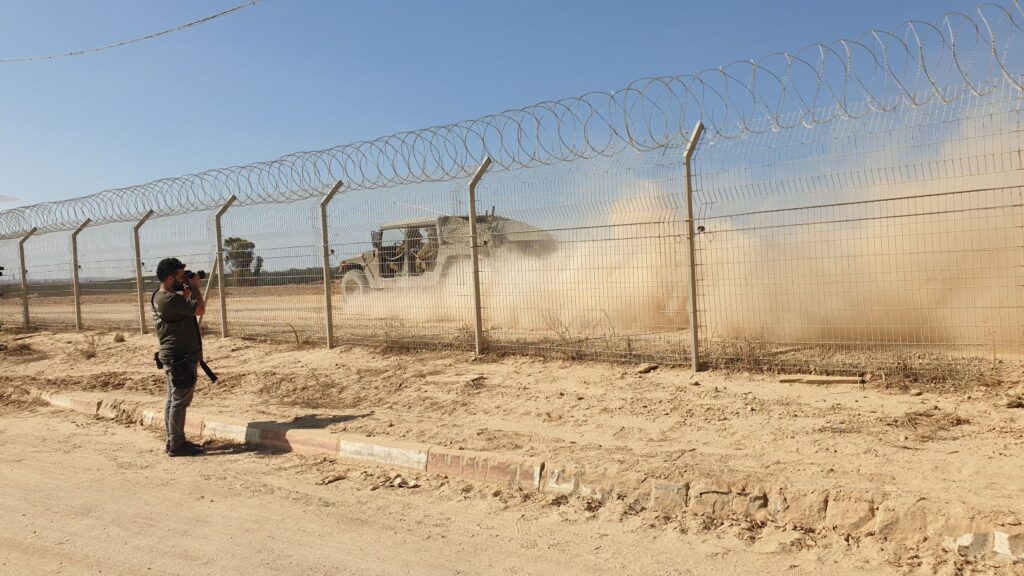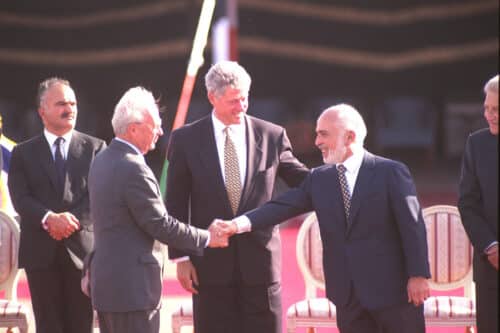
Everyone agrees that a “conception” led to the disaster of October 7, yet without clearly defining this conception and understanding its roots, such consensus is meaningless. Public discourse and media often attribute the failure to terms like “disengagement” or “suitcases of money for Hamas,” but these are merely symptoms of a much deeper, flawed mindset that over time became broadly accepted among security institutions, political leadership, and Israeli society at large.
Outlining the “Conception”
The terror attack on October 7 did not occur in a vacuum. It resulted from a longstanding failure in Israel’s national security approach.
Since the onset of the Oslo Accords, and especially following the Gaza disengagement, a prevailing doctrine within Israel’s political and security establishments advocated containment rather than eradication of threats, hoping that economic improvement and easing restrictions on the enemy would suffice to restrain its aggression.
This approach had profound, long-term implications. It weakened Israeli deterrence, bolstered enemy confidence, and significantly eroded IDF capabilities, both logistically and operationally.
At the core of this conception was the idea that even temporary reoccupation of Gaza, or any enemy territory, was unthinkable. This view first emerged during the Oslo process and intensified after the Gaza disengagement. It became entrenched within the political-security establishment, leading Israel to avoid reasserting military control in Gaza, even at the price of tolerating an openly hostile terror regime committed to its destruction. Even when clear opportunities to topple Hamas presented themselves—during Operation Cast Lead (2008), Operation Protective Edge (2014), and other occasions—Israel consistently refrained from decisive action.
Instead of confronting Hamas, Israel adopted a strategy of containment. Although never officially codified, this approach functioned almost as oral tradition: managing threats indirectly, avoiding direct confrontation, applying measured pressure, and maintaining “acceptable” risk levels. Within this framework, economic measures aimed at improving Gaza’s living conditions—employment, goods transfers, and permits—were promoted, hoping these gestures would gradually moderate Hamas.
From American Containment to Israeli Containment
This flawed Israeli approach was not born in isolation. It derived from American containment strategy during the Cold War, aimed at halting communism’s global spread by systematically restraining Soviet influence through clear boundaries, managing risks, and supporting allied states, thus avoiding full-scale war. This strategy assumed a rational superpower like the Soviet Union would act within calculated strategic constraints, avoiding dangerous escalation—a reasonable assumption, eventually borne out.
Unlike the American scenario, Israel faces adversaries not driven solely by rational strategic interests. Hamas is a terror organization motivated by radical religious ideology. Even when governing, Hamas does not demonstrate responsible state-like behavior toward its populace. Against such an opponent, any concessions or operational leeway do not lead to moderation but are instead exploited to build strength for the next conflict.
How Israel Lost the North
Israel’s handling of Hezbollah after the 2006 Second Lebanon War exemplifies this containment misconception. Despite initially weakening the Lebanese terror organization’s capabilities, Israel refrained from decisive measures to prevent Hezbollah’s military resurgence. Consequently, Hezbollah built an extensive missile arsenal capable of striking all of Israel and developed offensive tunnels penetrating Israeli territory—discovered later in Operations “Northern Shield” (2018) and “Northern Arrows” (2024). Had Hezbollah used these tunnels simultaneously with Hamas’s October 7 attack, the consequences would have been catastrophic.
Iran identified this Israeli policy weakness and exploited it, strengthening its regional grip. Iran established sophisticated military bases in Syria, becoming hubs for the Islamic Revolutionary Guard Corps (IRGC), while also supplying Hezbollah with advanced weaponry and military technology. Israel’s targeted and limited military actions failed to counteract this trend, allowing Iran to turn Syria and Lebanon into frontline threats against Israel.
Erosion of Deterrence and Military Power
Containment policy was coupled with a belief that large-scale military confrontations were increasingly unlikely, reducing the perceived need for a robust, ground-based military supported by significant reserve forces. This assumption profoundly influenced IDF force structure. Under the slogan “a small and smart army,” Israel decreased the size and strength of ground and reserve forces, reducing ammunition stockpiles and capacity for sustained military campaigns. Increasing reliance on technology and intelligence came at the expense of maintaining powerful, well-trained ground forces.
This ongoing erosion significantly weakened Israeli deterrence. Iran and its proxies—Hamas and Hezbollah—understood Israel was not seeking decisive victory and used the opportunity to build up capabilities in preparation for a broader confrontation.
Have We Truly Learned?
The necessary conclusion is that the conception was not merely an intelligence failure or a single strategic error. It emerged from a deep-rooted cultural and intellectual failure. Decision-makers and opinion leaders became comfortable with temporary quiet, rather than pursuing sustainable security. It is a culture of denial, preferring to postpone confrontations instead of striving for decisive victory.
Now that we’ve identified this conception, we must ask: Have we learned our lesson? It seems we haven’t fully. Voices once again claim Israel cannot decisively defeat, occupy, or hold strategic security zones. Astonishingly, some of the same think tanks previously promoting containment are now advocating transferring Gaza control to the Palestinian Authority—a corrupt, weak, and terror-supporting entity. Rather than seeking victory, they once again propose handing power to hostile actors actively working against Israel. What greater proof of ongoing conceptual blindness could there be?
To ensure the horrors of October 7 never recur, Israel must return to its foundational Zionist security doctrine: security built upon decisive victory, military strength, and an unwavering pursuit of triumph.





